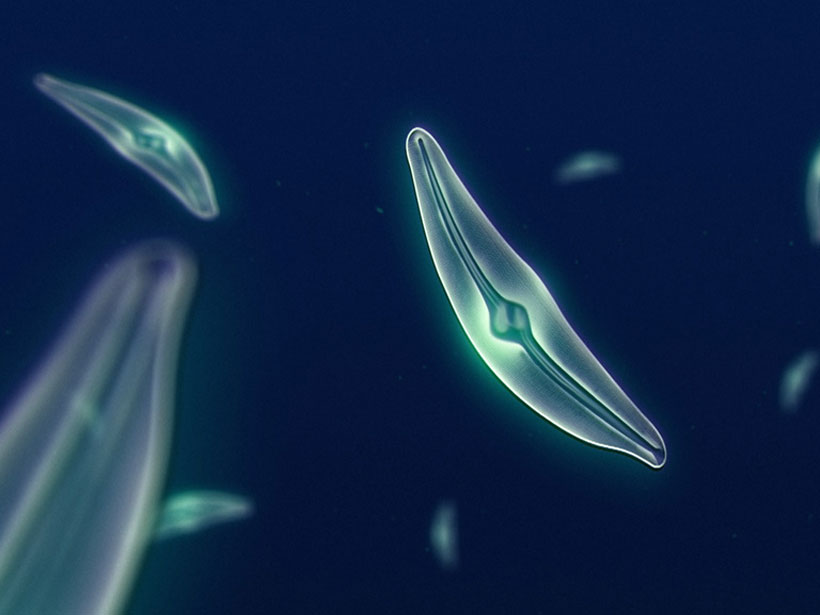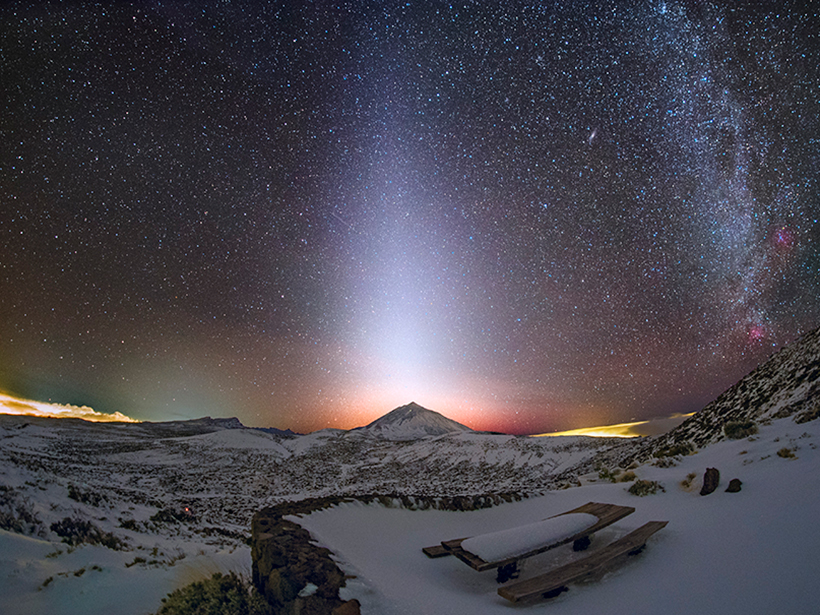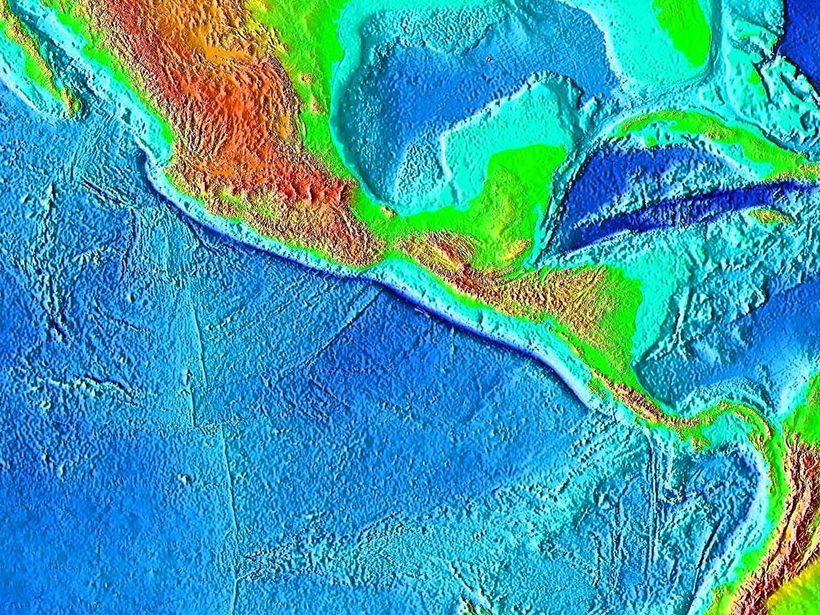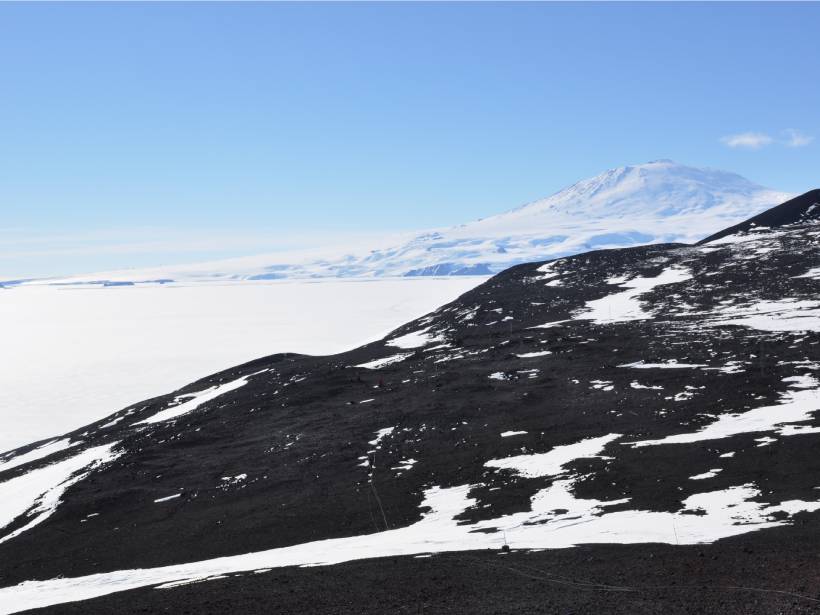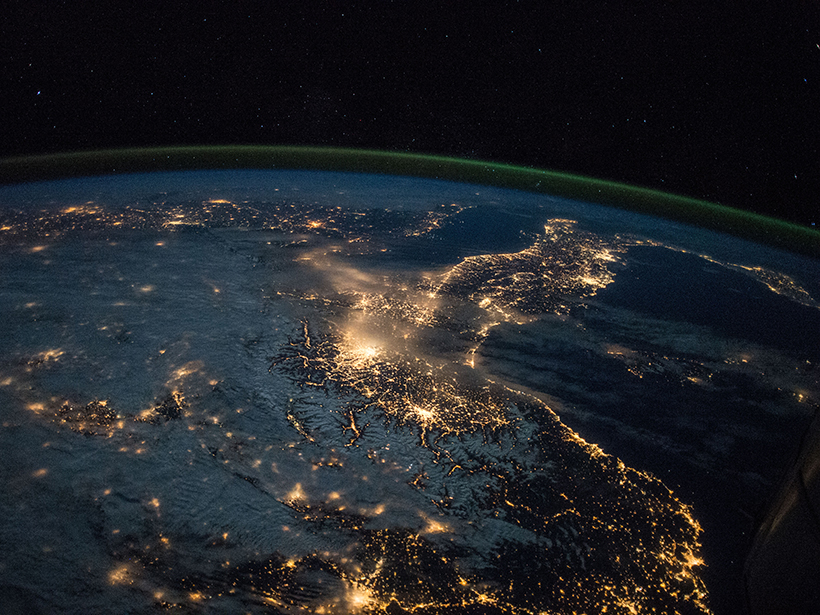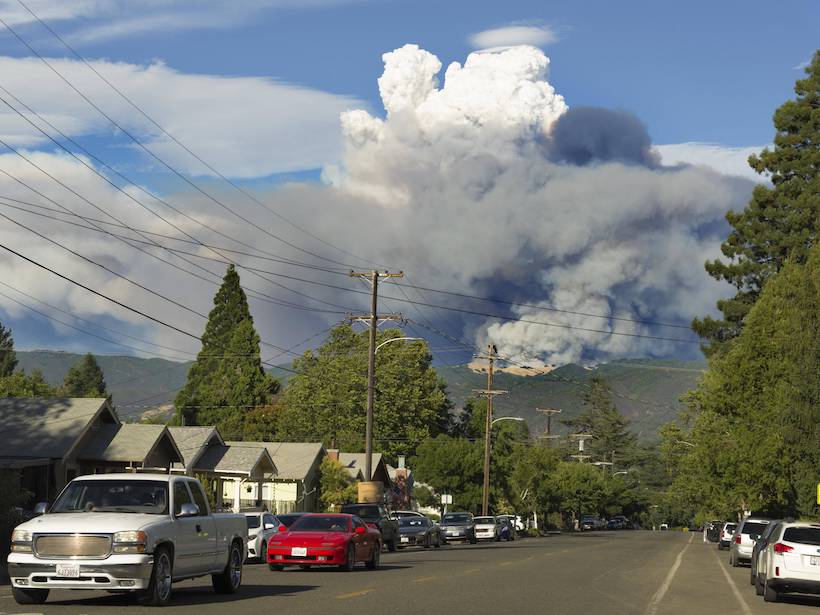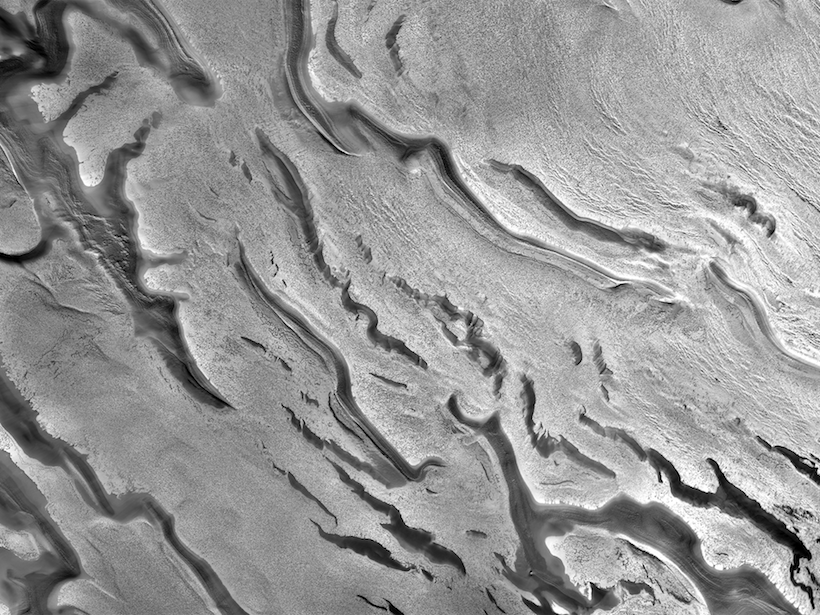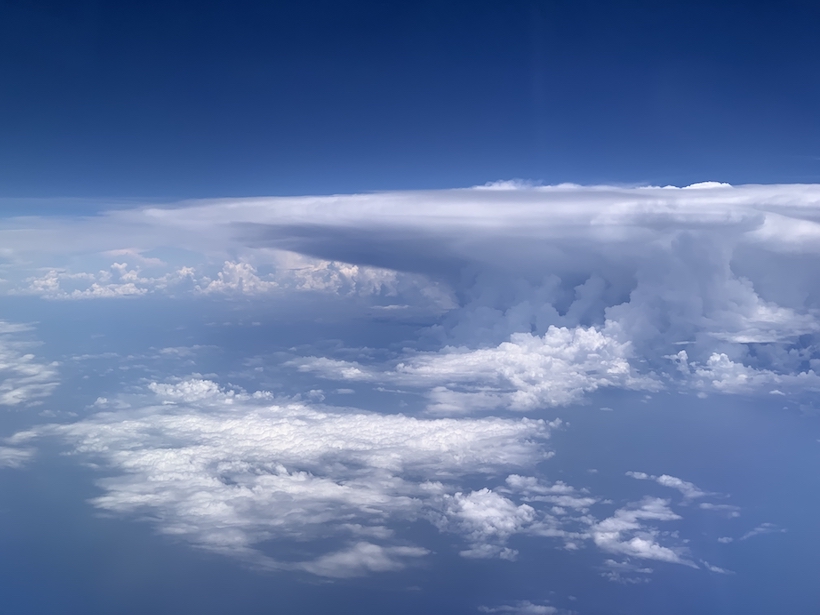New network analysis suggests that zinc and cadmium sulfides weathered simultaneously in geological history, making cadmium a suitable substitute in photosynthetic pathways when zinc was scarce.
Sarah Stanley
Sarah Stanley, a freelance writer for Eos, has a background in environmental microbiology but covers a wide range of science stories for a variety of audiences. She has also written for PLOS, the University of Washington, Kaiser Permanente, Stanford Medicine, Gladstone Institutes, and Cancer Commons, a nonprofit that works with cancer patients.
The Space Dust That Causes Zodiacal Light Might Come from Mars
Serendipitous observations by the Juno spacecraft while it was en route to Jupiter suggest a Martian source for the dust, but how the dust escapes Mars or its moons remains unknown.
Subduction May Recycle Less Water Than Thought
A new analysis of seismic data from the Middle America Trench suggests that previous calculations have vastly overestimated the total amount of water transported to the mantle worldwide.
Antarctic Lava Yields Clues to Earth’s Past Magnetic Field
A new analysis suggests that a widely accepted approximation of ancient magnetic field strength may be less accurate for the past 5 million years than previously thought.
Drivers of Upper Atmosphere Climate Change
New research confirms the influence of carbon dioxide on long-term temperature trends in the upper atmosphere, but changes in Earth’s magnetic field also play a key role.
“Thirstier” Atmosphere Will Increase Wildfire Risk out West
New climate projections could inform long-term wildfire and water resources management strategies in California and Nevada.
Boosting Weather Prediction with Machine Learning
WeatherBench is a data set compiled to serve as a standard for evaluating new approaches to artificial intelligence–driven weather forecasting.
A Precise Mosaic View of Mars’s South Pole
A new workflow improves the process of creating massive, accurate mosaics from spacecraft-captured images of a planet’s surface.
New Insights into Uncertainties About Earth’s Rising Temperature
A comparison of climate models finds that much of the variation in their predictions of global warming arises from differences in how they simulate the response of convective processes to warming.
Capturing Heat-Driven Atmospheric Tides on Mars
Spacecraft observations and model simulations provide new insights into tidal patterns that transport momentum and energy into the planet’s upper atmosphere.

